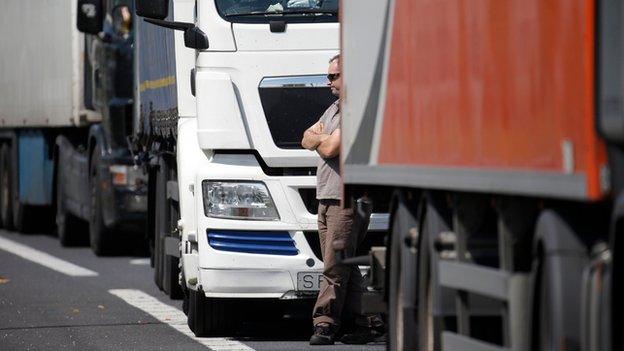Calais migrants: Truckers fight stowaway fines
- Published
Just outside Calais, migrants watch for opportunities to board UK-bound lorries
The Home Office is facing two separate legal challenges over the way it imposes fines on haulage firms caught transporting migrants into Britain.
Hauliers and drivers can face civil penalties of up to £2,000 per migrant.
Two foreign firms are taking separate cases to the Court of Appeal this week, challenging the legality of the system.
The Home Office would not comment on the hearings but said a third of lorries arriving at Calais did not have "basic standards of security".
Last year more than £6m worth of fines were imposed for incidents at Calais alone.
The firms challenging the rules - one Romanian and one Dutch - want the fines cancelled and Home Office guidelines rewritten.
The lorry drivers weary of Calais
How is the UK-France border policed?
Calais lorry driver fines 'unfair'
The government's website tells drivers, external they can be fined "if you don't secure your vehicle, and you're found carrying clandestine entrants into the UK".
Drivers must carry out frequent checks and firms have to show an effective security regime is in place.
The scheme came in to force in April 2000 and was designed to force companies to improve their security.
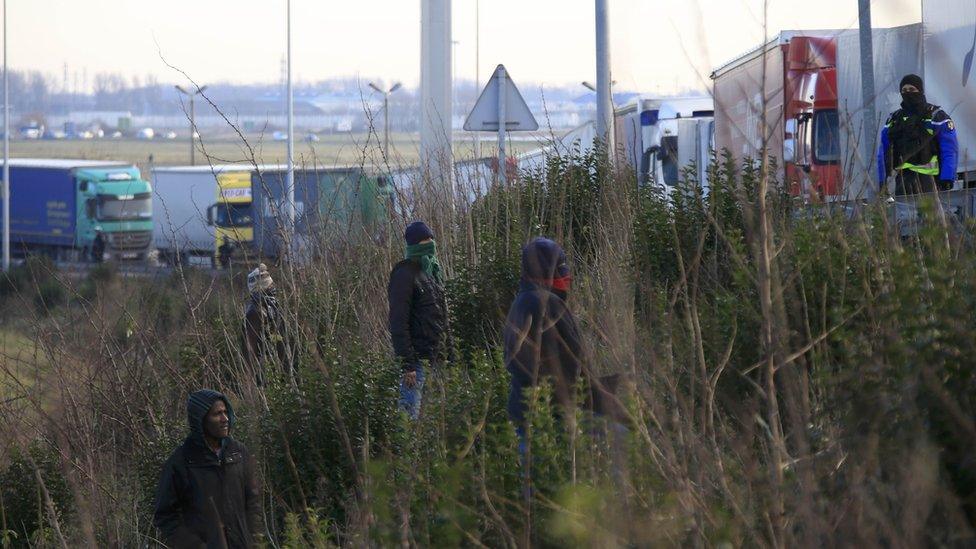
French police have struggled to stop migrants boarding lorries near Calais
In 2014, about 4,000 migrants were caught trying to get into the UK each month. By July 2015 that had gone up to almost 13,000.
Last year more than 3,300 civil penalties were served, worth £6.6 million.
Not every driver received the maximum fine - the authorities can exercise discretion if there are mitigating factors.
'Cannot do more'
Marius Cuzmin manages a Romanian haulage company - one of the firms whose case will be heard by the Court of Appeal.
Speaking about efforts to stop migrants boarding lorries, he said: "We are doing all we can, we're following all the guidelines... we cannot do anything more than we are doing right now."
In 2013, three migrants jumped on to the roof of one of his trucks from a motorway bridge.
They cut through the tarpaulin cover and were found by British immigration officers during checks at Calais.
The company was fined £900, and the driver £600.
In total his company has paid out more than £3,000 since the scheme began.
He claims some small firms have been forced out of business by the fines, and said he brought the legal case to "show that we're not the ones to be blamed".
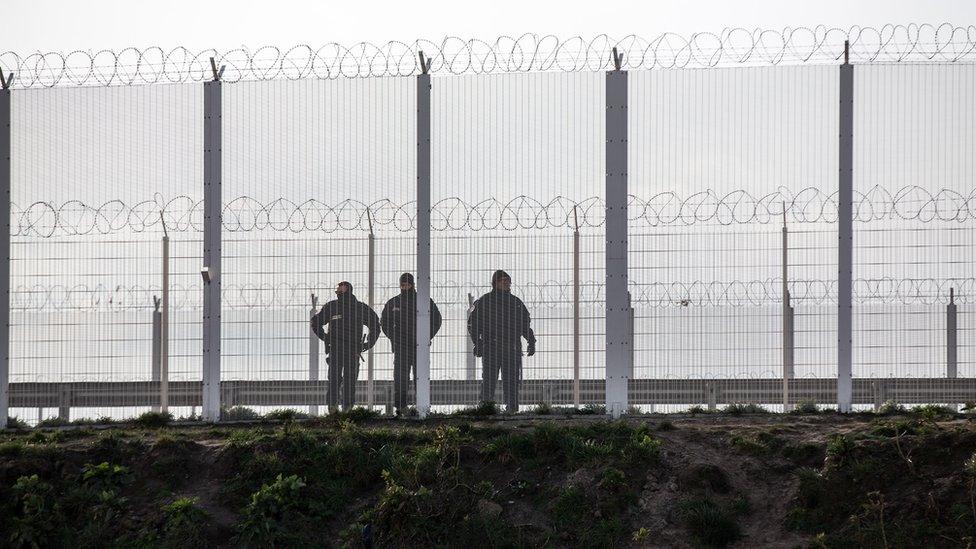
France and the UK have spent millions of pounds on security around Calais
According to Mr Cuzmin's solicitor Rupinder Matharu, from the firm MTG, the case could have "huge implications" for the haulage industry.
She is challenging the Home Office on three main grounds.
Central to her argument is that Mr Cuzmin's firm followed all the Home Office guidelines on security - the driver had a copy of the guidelines translated into Romanian, he checked the lorry three times before arriving in Calais and did not stop close to the port where many of the migrants gather.
"We feel they had taken every step that they possible could," she said. "Regardless, the fine was imposed."
She said she wanted a "gentler" approach from the Home Office. And she believes there is a wider principle.
The majority of trucks crossing the channel are foreign owned - fewer than 15% of HGV's are British registered and only 7% of fines are paid by UK-based firms.
Ms Matharu said many foreign firms do not appeal against the fines.
"Because of the amount, you have a lot of companies that will settle the fines and not challenge them," she said.
'Important questions'
Mr Cuzmin's case is to be heard on Wednesday and judgement will be reserved.
On Thursday the same three judges will hear another case.
A Dutch company called Bolle is appealing against a fine of £7,200.
In 2013, a driver picked up a sealed container from Frankfurt airport, and when it was opened for the first time in Berkshire, six illegal migrants were found inside.
The court has agreed to hear the case acknowledging that it "raised important questions of principle".
The cases are the first time since 2002 that a case about this issue has been raised in the Court of Appeal.
The Home Office did not comment on either case, but issued a statement saying the purpose of the scheme was to "ensure drivers take reasonable measures to stop migrants boarding their lorries".
Those who take appropriate steps "will not receive a penalty", it added.
- Published10 June 2015
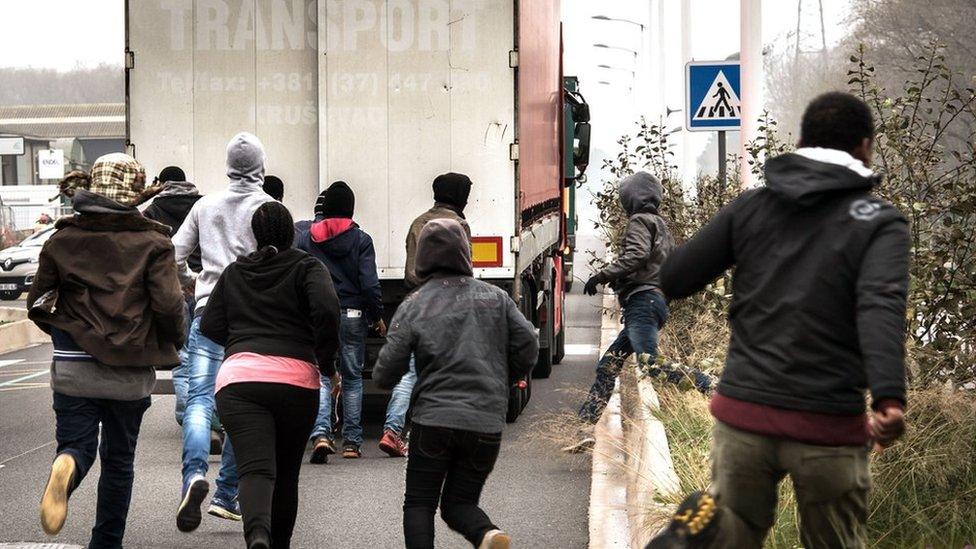
- Published3 March 2016
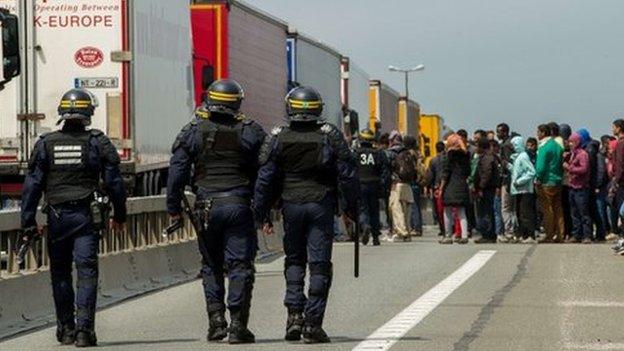
- Published5 August 2015
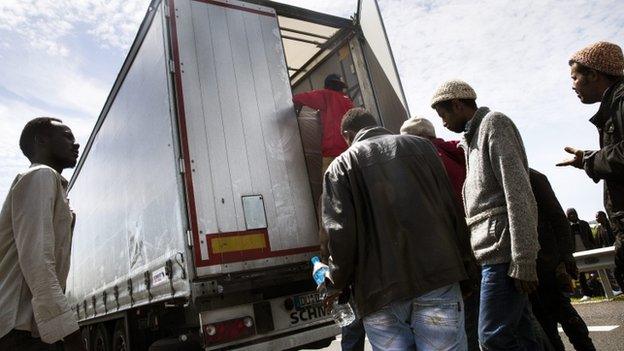
- Published5 August 2015
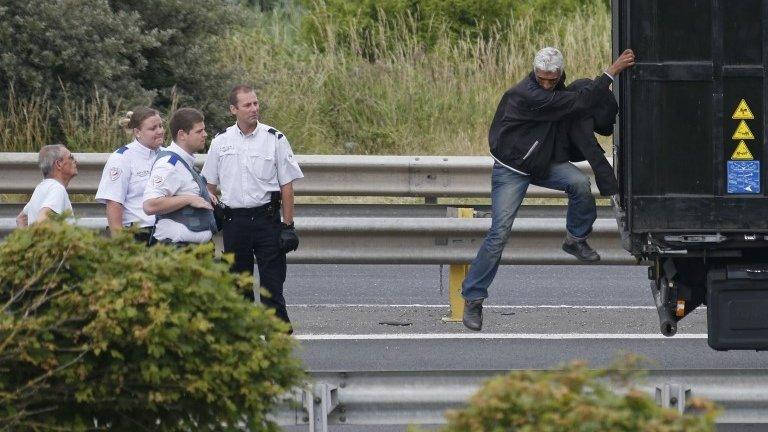
- Published24 June 2015
